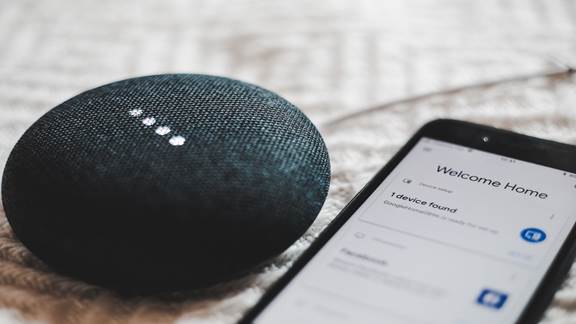IoT and the promise of connected, ubiquitous technology is great - when it works. In reality the support service of the providers can be frustratingly inadequate at times when customers need it the most.
I have a connected home that includes essential IOT utility and security services. When it works as expected I have convenience and control on demand and on the go. But when it all went wrong in COVID lock-down it became a customer service failure.

Covid-19 - the perfect use case for intelligent customer service
Where it all went wrong
It was Sunday evening at the beginning of lockdown and I realised that the house felt cold. As I checked radiators, my son shouted that the wi-fi wasn’t working. I completed the usual fail-safe of switching the router on but with no success.
We were in lock-down and there was no broadband!
Broadband is an essential service. Essential for connection. A lifeline to food. A source of income for remote workers, as well as a source of entertainment. In my case, it’s also the source of heating, hot water and home security.
What happened next was a series of failures
Fail 1: I spent 40 mins using the broadband provider’s self-diagnostic app with no luck.
Fail 2: I called them and after navigating IVR trees, I was informed by a recorded message that the call centre was closed.
Fail 3: My priorities changed from getting broadband reinstated, to restoring heating and hot water. I couldn’t access the IoT heating control via the app without wi-fi so I went in search of a manual override on the hardware.
Fail 4: There was nothing obvious, no affordance to indicate what to do.
Fail 5: Using my mobile on 4G, I checked the provider’s support website. I navigated to the FAQs and saw a chat bubble. I clicked the bubble to be told ‘...support is now closed...’
Fail 6: I persisted and found an article ‘what to do in the event of no Wi-fi’. Despite designing user-interfaces for 20+ years, after multiple attempts to follow the instructions on the article I failed to reboot the system using the one button manual override.
Fail 7: I searched the rest of the website but there was no apparent ‘contact us’ link.
Fail 8: I searched Google and found a listing for the provider’s ‘emergency contact’ number. I called but got a pre-recorded voice instructing me to leave a message and that someone would call me back.
Fail 9: An hour later, after a lukewarm shower, the kids were in bed and I hadn’t had a call back.
Fail 10: After a further 90 minutes sat under a blanket in the lounge, I called back and left another message.
Fail 11: At 23.15 I gave up and went to bed, unable to set the security alarm.
The next morning wasn't successful either
As I tried to get 2 kids out of bed to set them up for home-schooling, in a cold house, with no hot water, no Joe Wicks (!) and no broadband for remote working.
I called the broadband provider on the home phone, while tethering my 4G mobile to my laptop to download curriculum-based activities for the kids while zooming on a work call.
I don’t know how many times I heard ‘we apologise but we are experiencing extremely high call volumes...’ (Fail 12). Eventually I got through and after instructing me to repeat the checks I’d done the night before, the customer service agent forced a reboot from their side. Thankfully this solved the problem and subsequently I was able to reboot the heating system.
The call back from the heating service never came- Fail 13
So what can we learn from this?
The purpose was to urge service providers to look to smart AI based contact center technology including smart voice and chat assistants to provide a ubiquitous, effective and engaging customer experience. Coupled with data-led service design you could match every touch point with both ‘happy path’ and ‘alternate path’ scenarios to ensure adequate support processes in all critical use cases.
How have your customer service models stacked up under the Covid-19 pressure? Are you still in crisis mode or have you levelled out to consider business recovery? We know that Covid-19 has changed our world and some of those changes may even be permanent. Has your organisation started planning yet for how your products, business and service models might adapt in a post-covid world?